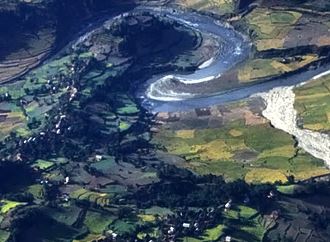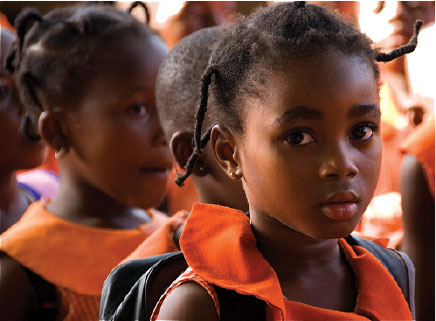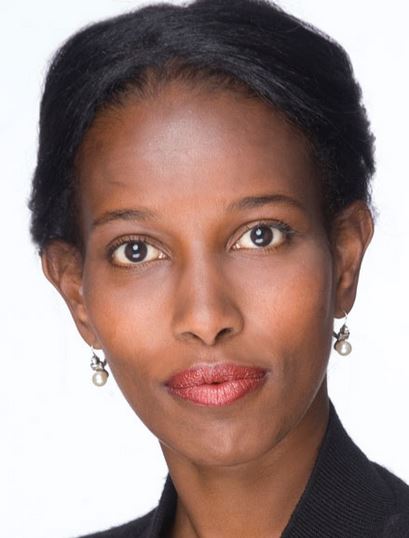[vc_row][vc_column][vc_column_text]
Africa
 Africa (excluding Egypt) is the second most populous region after Asia-Pacific. It comprises 50 countries and 1.15bn people. Total GDP was 2.04 trillion USD in 2018. Average GDP per capita was 2,698 USD, which was the lowest among the regions. Total exports were 513m USD. Africa was the birthplace of homo-sapiens over 315,000 years ago. Around 4,000 BC, the Bantu developed farming. They began to spread east from modern day Nigeria and Cameroon and then down into Sub-Saharan Africa. Around 3,000 BC, Ancient Egypt began to develop and were lords of the Nile for over 2000 years. They were overtaken by the Kushite Kingdom who in turn were overtaken by the Aksum Kingdom from Ethiopia in around 300 AD. North Africa became the theatre of empires including the Phoenicians (Carthaginians), Persians, Macedonians, Romans, Byzantines, Arabs, and Ottomans. In Sub-Saharan Africa, several key empires developed from the middle ages including the Mali empire, the Benin empire, the Mutapa, the Ethiopian empire, and the Kingdom of Kongo. The Arabs began to conquer North Africa in 7th century and eventually extended their influence into Western and Eastern Africa through trade. The Portuguese were the first modern Europeans to explore the Atlantic and Indian Ocean coasts of Africa. They developed trading ports, colonies, and the slave trade. The French, Dutch and English also began to colonise Africa and were joined in the 19th century by the Germans, Belgians, and Italians. The Berlin conference in 1884, formally defined European colonial interests in Africa. WW1 saw Germany’s territory ceded to the other European powers. After WW2, independence swept across Africa helped by the Organisation of African Unity (OAU) formed in 1963. The OAU became the African Union in 2002. Strong economic growth in the 1960s and the beginnings of industrialisation (mostly through import substitution) gave way to economic mismanagement, civil war, and drought in the 1970s and 1980s. As a result, international economic assistance became increasingly important. Assistance from the IMF and World Bank evolved over time moving from the early Structural Adjustment Programs in the 1980s to the Millennium Development Goals in the 1990s, the assistance for Heavily Indebted Poor Countries (including debt forgiveness) in the 2000s, to the Sustainable Development Goals in the 2000s and beyond. Regional economic cooperation has also played an important role in development. Currently there are eight main regional economic communities. A regional electricity market in Southern Africa and a pan-African banking market are also spurring economic integration and development. The 2000s saw many Sub-Saharan Africa countries benefit from the resource boom and increased investment from China. The Arab Spring brought change to many North African countries. All across Africa the rise of ICT is inspiring hope in the younger generation.[/vc_column_text][/vc_column][/vc_row][vc_row][vc_column][vc_column_text]
Africa (excluding Egypt) is the second most populous region after Asia-Pacific. It comprises 50 countries and 1.15bn people. Total GDP was 2.04 trillion USD in 2018. Average GDP per capita was 2,698 USD, which was the lowest among the regions. Total exports were 513m USD. Africa was the birthplace of homo-sapiens over 315,000 years ago. Around 4,000 BC, the Bantu developed farming. They began to spread east from modern day Nigeria and Cameroon and then down into Sub-Saharan Africa. Around 3,000 BC, Ancient Egypt began to develop and were lords of the Nile for over 2000 years. They were overtaken by the Kushite Kingdom who in turn were overtaken by the Aksum Kingdom from Ethiopia in around 300 AD. North Africa became the theatre of empires including the Phoenicians (Carthaginians), Persians, Macedonians, Romans, Byzantines, Arabs, and Ottomans. In Sub-Saharan Africa, several key empires developed from the middle ages including the Mali empire, the Benin empire, the Mutapa, the Ethiopian empire, and the Kingdom of Kongo. The Arabs began to conquer North Africa in 7th century and eventually extended their influence into Western and Eastern Africa through trade. The Portuguese were the first modern Europeans to explore the Atlantic and Indian Ocean coasts of Africa. They developed trading ports, colonies, and the slave trade. The French, Dutch and English also began to colonise Africa and were joined in the 19th century by the Germans, Belgians, and Italians. The Berlin conference in 1884, formally defined European colonial interests in Africa. WW1 saw Germany’s territory ceded to the other European powers. After WW2, independence swept across Africa helped by the Organisation of African Unity (OAU) formed in 1963. The OAU became the African Union in 2002. Strong economic growth in the 1960s and the beginnings of industrialisation (mostly through import substitution) gave way to economic mismanagement, civil war, and drought in the 1970s and 1980s. As a result, international economic assistance became increasingly important. Assistance from the IMF and World Bank evolved over time moving from the early Structural Adjustment Programs in the 1980s to the Millennium Development Goals in the 1990s, the assistance for Heavily Indebted Poor Countries (including debt forgiveness) in the 2000s, to the Sustainable Development Goals in the 2000s and beyond. Regional economic cooperation has also played an important role in development. Currently there are eight main regional economic communities. A regional electricity market in Southern Africa and a pan-African banking market are also spurring economic integration and development. The 2000s saw many Sub-Saharan Africa countries benefit from the resource boom and increased investment from China. The Arab Spring brought change to many North African countries. All across Africa the rise of ICT is inspiring hope in the younger generation.[/vc_column_text][/vc_column][/vc_row][vc_row][vc_column][vc_column_text]
MIGA (World Bank): Islamic Finance – A Growing Source of Capital for the Developing World
World Bank Policies Include Screening for Climate Risks
Magatte Wade: An African Serial Entrepreneur with a Heart
Norton Rose Fulbright: EU Sets New Financial Laws for Non-EU Entities
World Bank Group: “Customer is King” – Toward More Effective Development?
OECD: Achieving a Resilient Economic Recovery
From Nigeria to UK – Dr Solomon Fubara: Helping the Diaspora Break into Business
From Somalia to the United States – Ayaan Hirsi Ali
CFI.co Meets the CEO of Travant Capital Partners: Sanyade Okoli
Christopher Colford: Speed Bumps Along the Road to Competitiveness
From Germany to South Africa – The Oppenheimers: Diamonds Are Not Forever
World Bank Group President Brings Hopeful Message to Middle East
Loading, Please Wait!
This may take a second or two.



























































































